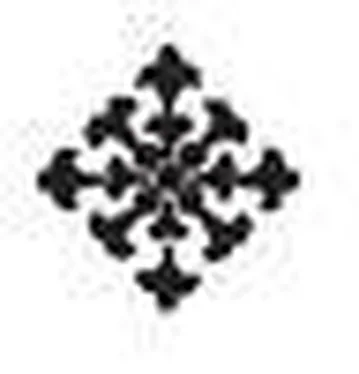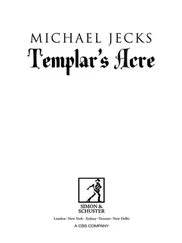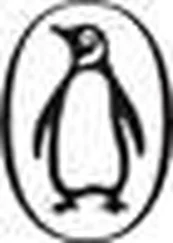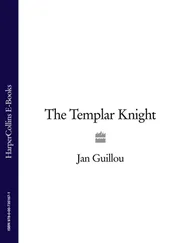“But you said it yourself: Without the encryption key, the Emerald Tablet has no power.” No sooner did she utter those words than Edie was hit with a horrifying thought. “ Oh God! You’re worried that Rico Suave has the encryption key.”
“Or the group that he’s working for is in possession of it. Yes, the thought has crossed my mind.”
“So, who is Rico Suave’s employer?”
Caedmon shrugged. “A rogue nation. Or perhaps a terrorist cell. Even a lone madman is a terrifying prospect if the madman has the motive and the means to create the primeval atom.”
“Because the Big Bang only needs one exploding atom,” she quietly murmured, the dread escalating.
“Surely you understand why I must fly to Philadelphia.”
“Telling me there are six universes parallel to this one doesn’t mean that I understand quantum physics. Not to mention you used the singular ‘I’ instead of the royal ‘we.’ ”
“When I call Thames House, I’ll arrange to have you taken to—”
She put a silencing hand over his mouth. “Don’t waste your breath. I’m going with you.” Point made, she lowered the makeshift gag.
“Right.” He acquiesced with a grim nod. “In all honesty, I don’t know where the clues contained within The Book of Moses will take us. If anywhere. After two hundred and thirty-five years, the trail is a bit cold. Our search may very well begin and end at the American Philosophical Society. What we do know is that Franklin intended to conscript two accomplices to help him safeguard the Emerald Tablet. The Triad, as he called it.”
“And he planned to use the Second Continental Congress as his recruiting office.” Suddenly realizing the significance of that, she gasped. “Meaning that all of the members of the Triad were signatories to the Declaration of Independence.”

CHAPTER 65
We mutually pledge to each other our lives, our fortunes and our sacred honor.
On the sheet of parchment, beneath those immortal words, were penned fifty-six signatures beginning with the most flamboyant, that of John Hancock, the president of the Second Continental Congress. Several of the names were famous. Others known only to students of American history. All were considered Founding Fathers of the fledgling nation that on July 4, 1776, officially took its place on the world stage.
“A daunting task, eh?”
Tell me something I don’t already know, Edie despondently thought, making no reply to Caedmon’s wry observation.
Sitting side by side at the library table, an open book placed squarely between them, they stared at a copy of the Declaration of Independence. Next to the library book was a new Dell netbook computer, a small stack of plain white paper, and four sharpened lead pencils, the only supplies permitted in the reading room at Philadelphia’s Library Hall. Located around the corner from Independence Hall, where the Second Continental Congress met in 1776, Library Hall was owned by the American Philosophical Society. As with the parent, the library had been founded by Benjamin Franklin.
Edie’s gaze alighted on the top sheet of paper, which was noticeably blank. If a picture was worth a thousand words, that blank sheet of paper did not bode well.
Not quite ready to throw in the towel, she said, “We’re looking at the signatures of the best and brightest men the colonies had to offer. A list that includes men from all walks: lawyers, farmers, businessmen, and professional politicians. We know that Benjamin Franklin intended to recruit two men from this group to help him safeguard the Emerald Tablet.”
“The Triad,” Caedmon said in a lowered voice. The floor-to-ceiling bookcases, Georgian windows, and colonial-style chandeliers invited reverential tones.
“Any idea how to whittle down the list?” She pasted a chipper smile on her face, hoping the nonstop flight from London to Philly wouldn’t prove a colossal waste of time, energy, and money.
Caedmon thoughtfully stared at the open book. “I suspect that Franklin’s Triad would not have included any Freemasons,” he said after a lengthy pause. Then, smiling slightly, he amended, “Aside from the wise sage of Craven Street himself.”
“I agree. It would defeat his purpose to have an initiated fox stand sentry. And Franklin made it very clear in The Book of Moses that he considered the Freemasons ‘a superstitious coven of sun-worshipping Atenists and bewigged magi.’ ”
“His own membership in the group simply a means to an end. A way to get his leather-shod foot in the drawing room door.”
“The old coot was wily, I’ll give him that,” Edie said with a chuckle, still amused at how Franklin pilfered the Emerald Tablet. “We should be able to find an online list of signatories to the Declaration of Independence who were also Freemasons.”
“Right.” Caedmon deftly pecked away on the computer keyboard. Because of his publishing credentials, he’d managed to secure a researcher’s pass for the both of them, the library open only to academics. “There you have it, the rogue’s gallery,” he announced a few moments later, jutting his chin at the roster of names on the computer screen.
William Whipple
John Hancock
Robert Treat Paine
William Ellery
Richard Stockton
Benjamin Franklin
William Hooper
Joseph Hewes
George Walton
“Our task has been rendered slightly less daunting.”
Edie examined the list of Freemason/Founding Fathers. “Just so you know, there’s no doubt in my mind that every one of these guys was a loyal patriot,” she avowed, refusing to sling mud—even at a sun-worshipping Atenist.
“What you reckon as patriotism, King George and his ministers deemed treason.”
Not wanting to fight another revolution, Edie decided a change of subject was in order. “Okay, we’ve reduced the roll call to forty-seven signatories. Which is still a far cry from Franklin’s two-man tag team.”
“Not to fear, I have another trick up my sleeve.” Blue eyes mischievously twinkling, Caedmon’s fingers furiously pecked away at the keyboard.
“What are you doing?”
“Accessing the member database for the American Philosophical Society. In those turbulent months leading up to the final break with Britain, loyalties were shifting and uncertain. Franklin couldn’t be too careful in his selection.”
“I seem to recall from a long-ago history lesson that Franklin’s own son William, who happened to be the governor of New Jersey, remained loyal to the Crown. So, what are you thinking? That Franklin would have recruited the other two members of the Triad in-house?” Raising her arms, Edie gestured to the four walls of the reading room. “Specifically this house.”
Still typing, Caedmon nodded. “Franklin was searching for two trustworthy, like-minded men possessed of ‘a keen intellect and a stalwart heart.’ ”
“Given that the American Philosophical Society was Franklin’s homegrown answer to the Royal Society, all of the members would have satisfied the first criteria.”
“However, unlike its English template, Franklin was determined that his society would be free of the elitist taint associated with the Royal Society. Ah! I give you the American Philosophical Society circa 1776.” Caedmon expansively gestured to the monitor.
John Adams
Stephen Hopkins
John Witherspoon
Francis Hopkinson
Robert Morris
Benjamin Rush
Benjamin Franklin
George Clymer
James Wilson
Thomas McKean
Francis Lightfoot Lee
Thomas Jefferson
John Penn
Читать дальше













